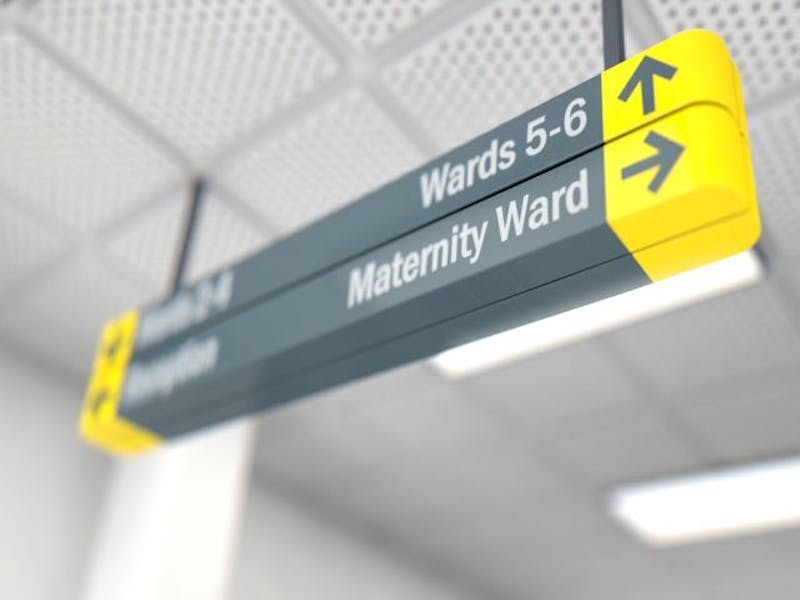Ovarian Cancer Awareness Month 2024
By Emily Chan
March is Ovarian Cancer Awareness Month. In the UK it is predicted that around 7,500 new cases of ovarian cancer are identified every year. In females it is the 6th most common cancer, accounting for around 4,100 related deaths in the UK each year – this is a staggering 11 deaths every day.
Currently, there is no national screening programme for ovarian cancer in the UK. This is because it is not picked up through routine screening and is often not diagnosed until sometime after the disease has developed and only then are there clinical signs of the disease.
What is ovarian cancer?
Ovarian cancer can affect anyone with ovaries. It occurs when abnormal cells in the ovary begin to grow and divide in an uncontrolled way, eventually forming a tumour. If not caught early, the cancer cell can gradually grow into the surrounding tissue and spread to other areas of the body.
The risk of developing ovarian cancer increases with age and is most common in post-menopausal women. The risk is greatest in those between 75 and 79.
Ovarian cancer symptoms
The symptoms of ovarian cancer can be vague, with most women experiencing the symptoms months before seeking medical assistance. The symptoms can be similar to other conditions, like Irritable Bowel Syndrome (IBS).
The main symptoms of ovarian cancer are:
- Increased abdominal size and persistent bloating (not bloating that comes and goes)
- Feeling full quickly, loss of appetite or feeling sick
- Pelvic and abdominal pain
- Needing to wee (urinate) more often
- Changes in bowel habits
Back pain, losing weight unexpectedly, feeling tired, and vaginal bleeding that is different or new can also be signs of ovarian cancer. Although these symptoms are more likely to be caused by something less serious than cancer, it is always worth getting them checked to be on the safe side.
A recent study, led by Imperial researchers and colleagues from UCL’s Department of Computer Science and Microsoft, shows that many women look up their symptoms online nearly a year before seeking GP referrals.
Google data shows that, of the 235 women studied, many were looking up symptoms online such as weight loss, bladder problems and bloating as early as 360 days before being issued referrals for suspected cancer.
These findings, published in the journal BMC Medicine, challenge the view that ovarian cancer “is a ‘silent killer’ where most women are asymptomatic”.
Dr Jennifer F Barcroft, lead author for the study, added: “Our results show that it is possible to use search engine data to understand how conditions present, and that this may have use in early disease detection.”
Commenting: “Online search data offers enormous potential within health and disease screening, given the widespread use of the internet worldwide”.
Diagnosis of ovarian cancer
If you have any of the symptoms detailed above, it is important to speak to your GP as soon as possible.
Your GP will ask about your symptoms and arrange to do an internal vaginal examination to check for any lumps or swelling. They will also arrange the following tests:
- a CA125 blood test to check for raised levels of this protein, which may be higher in ovarian cancer
- ultrasound scans to check your ovaries to see if there are any significant changes..
The earlier ovarian cancer is detected and diagnosed the better the chance of a successful outcome. Most women with Stage 1 ovarian cancer have an average 5-year survival rate of 93.1%, reducing to 70% at Stage 2, 25% at Stage 3 and almost 15% at Stage 4.
The Government has set out its top priorities for the Women’s Health Strategy for 2024, which include gynaecological problems. The rollout of women’s health hubs aims to improve access to care, enhance health outcomes and reduce health inequalities. These hubs offer services for various women’s health issues, including menstrual problems, contraception, pelvic pain, and menopause care. Read more on the plan here.
At Switalskis, we support clients and families where a misdiagnosis or delay in diagnosis of cancer has occurred. If you think you have received inadequate or delayed treatment by your GP or other medical providers relating to ovarian cancer, you may have a medical negligence claim. If you feel that this applies to you or anyone you know, please reach out and make contact with us so that we can begin to support you. Call 0800 138 0458 or email help@switalskis.com


